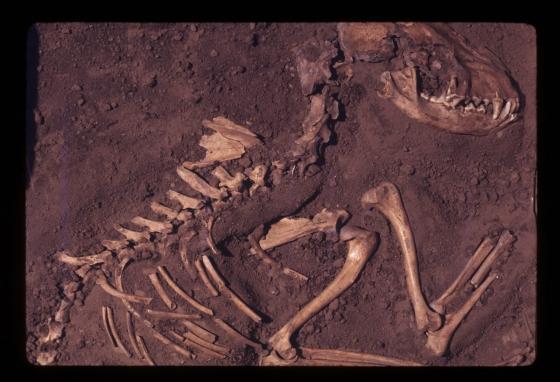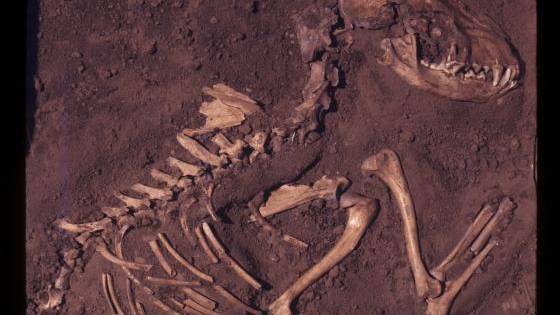Dogs Likely Originated in Europe More Than 18,000 Years Ago
Source: sciencedaily.com
Wolves likely were domesticated by European hunter-gatherers more than 18,000 years ago and gradually evolved into dogs that became household pets, UCLA life scientists report. "We found that instead of recent wolves being closest to domestic dogs, ancient European wolves were directly related to them," said Robert Wayne, a professor of ecology and evolutionary biology in UCLA’s College of Letters and Science and senior author of the research. "This brings the genetic record into agreement with the archaeological record. Europe is where the oldest dogs are found."
"We found that instead of recent wolves being closest to domestic dogs, ancient European wolves were directly related to them," said Robert Wayne, a professor of ecology and evolutionary biology in UCLA’s College of Letters and Science and senior author of the research. "This brings the genetic record into agreement with the archaeological record. Europe is where the oldest dogs are found."The UCLA researchers’ genetic analysis is published Nov. 15 in the journal Science and featured on the journal’s cover.
In related research last May, Wayne and his colleagues reported at the Biology of Genomes meeting in New York the results of their comparison of the complete nuclear genomes of three recent wolf breeds (from the Middle East, East Asia and Europe), two ancient dog breeds and the boxer dog breed.
"We analyzed those six genomes with cutting-edge approaches and found that none of those wolf populations seemed to be closest to domestic dogs," Wayne said. "We thought one of them would be, because they represent wolves from the three possible centers of dog domestication, but none was. All the wolves formed their own group, and all the dogs formed another group."
The UCLA biologists also hypothesized at that conference that a now-extinct population of wolves was more directly related to dogs.
For the current study in Science, the researchers studied 10 ancient "wolf-like" animals and eight "dog-like" animals, mostly from Europe. These animals were all more than 1,000 years old, most were thousands of years old, and two were more than 30,000 years old.
The biologists studied the mitochondrial DNA of the animals, which is abundant in ancient remains. (Mitochondria are tiny sub-cellular structures with their own small genome.) By comparing this ancient mitochondrial DNA with the modern mitochondrial genomes of 77 domestic dogs, 49 wolves and four coyotes, the researchers determined that the domestic dogs were genetically grouped with ancient wolves or dogs from Europe -- not with wlves found anywhere else in the world or even with modern European wolves. Dogs, they concluded, derived from ancient wolves that inhabited Europe and are now extinct.

"Ancient dog fossil A fossil of a dog that lived approximately 8,500 years ago, from the Koster archaeological site in Illinois. "
Wayne said that that the domestication of predatory wolves likely occurred among ancient hunter-gatherer groups rather than as part of humans’ development of sedentary, agricultural-based communities.
"The wolf is the first domesticated species and the only large carnivore humans ever domesticated," Wayne said. "This always seemed odd to me. Other wild species were domesticated in association with the development of agriculture and then needed to exist in close proximity to humans. This would be a difficult position for a large, aggressive predator. But if domestication occurred in association with hunter-gatherers, one can imagine wolves first taking advantage of the carcasses that humans left behind -- a natural role for any large carnivore -- and then over time moving more closely into the human niche through a co-evolutionary process."
[...]
Read the full article at: sciencedaily.com
More: Dogs may have helped Humans beat the Neanderthals






















